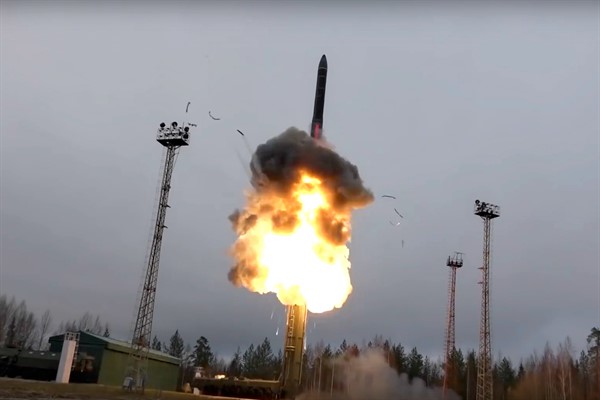In the early days of the COVID-19 pandemic, the Trump administration found itself defending proposed cuts in funding to the Centers for Disease Control and Prevention in its 2021 budget request to Congress. The cuts, which were the latest in a consistent pattern of reductions in CDC funding over the past 10 years, threaten to further hamper the government’s ability to respond to the COVID-19 outbreak. But they are part of a much broader trend of gradually deprioritizing critical institutions, one that threatens key government functions meant to provide stability in an unpredictable world.
Like the CDC, the State Department in recent years has endured a gradual reduction in funding and resources as a share of the total federal budget. More and more missions that were traditionally carried out by diplomats are now moving, either formally or informally, over to the Pentagon. In theory, there is a measure of bipartisan agreement on the value of diplomacy, but there is no bipartisan plan to mitigate the effects of this chronic underfunding, which has resulted in leadership turnover and persistent vacancies. These problems reflect, and are further compounded by, an overarching lack of strategic planning.
Arms control, in particular, suffers from the effects of these problems. Without significant diplomatic intervention, the New Strategic Arms Reduction Treaty, or New START, will expire in February 2021. The treaty, which was signed by the Obama administration in 2010 and took effect the following year, built on the legacy of decades of arms control negotiations between the U.S. and Russia to reduce nuclear warheads and ICBMs to their lowest levels since the early days of the Cold War-era arms race. It remains one of the cornerstones of relations between the world’s two largest nuclear powers. If it is not extended, the limits it imposes on the nuclear weapons in both nations’ arsenals will no longer be enforceable.

